More home for less money
Here’s how much space you can buy in San Antonio for $250,000
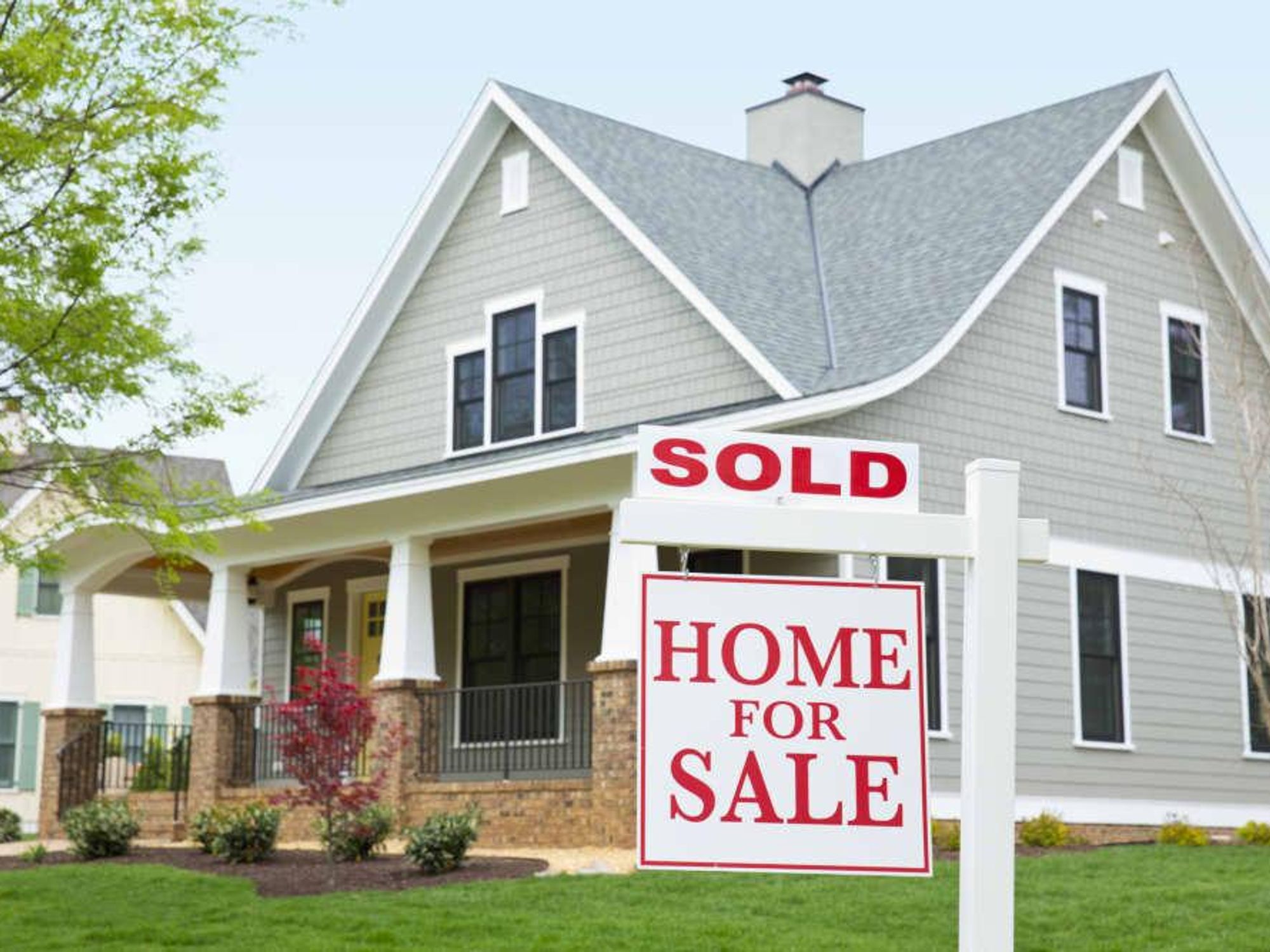
San Antonio continues to solidify its status as the most affordable housing market among major Texas cities.
A study released July 7 by the PropertyShark real estate website shows that San Antonio provides the biggest bang for the home buck within Texas’ four major metro areas. According to the study, a buyer spending $250,000 could purchase a 2,503-square-foot home in San Antonio. That amounts to $100 per square foot. PropertyShark’s data includes single-family homes, duplexes, condos, and townhouses.
Looking at the country’s 100 largest cities, San Antonio ranks 15th for the amount of square footage available for $250,000. Detroit sits atop the list. There, you can buy a 5,407-square-foot home for $250,000, PropertyShark says.
Last year, 35,456 single-family homes were sold in the San Antonio metro area, according to the Texas Association of Realtors. That’s a 6 percent increase compared with 2018. Homes priced between $200,000 and $500,000 made up more than half of the region’s sales volume in 2019.
“San Antonio continues to be a top destination for both buyers and sellers, and it’s exciting to see such tremendous growth in people achieving their dreams of homeownership,” Kim Bragman, 2020 chairwoman of the San Antonio Board of Realtors, said in a January release.
Looking at the country’s 100 largest cities, San Antonio ranks 15th for the amount of square footage available for $250,000. Detroit sits atop the list. There, you can buy a 5,407-square-foot home for $250,000, PropertyShark says.
Among all of the Texas cities on PropertyShark’s list, Austin ranks last. In Austin, $250,000 will get you a 1,139-square-foot house, PropertyShark says.
In its report on the 2019 real estate market, the Austin Board of Realtors noted that median home price in the region rocketed from $193,520 in 2010 to $318,000 in 2019. The Texas Association of Realtors says 36,782 single-family homes were sold in the Austin metro area last year.
“If we don’t take action to increase housing supply in Austin, we will continue to see exponential increases in home values,” Romeo Manzanilla, 2020 president of the Austin Board of Realtors, warned in a January release.
While Austin’s position in the PropertyShark study is worse than every other big city in Texas, it’s considerably better than places like New York City, San Francisco, and Los Angeles. In Manhattan, $250,000 would enable you to buy a home the size of a hotel room — 232 square feet. The situation isn’t much better in San Francisco, where $250,000 would get you a 269-square-foot home. In Los Angeles, that dollar amount would let you purchase a 524-square-foot home.
“In the country’s most populated cities with more than 900,000 residents, the difference in price per square foot between coastal cities and Texas cities is miles apart,” PropertyShark notes. “As expected, vast Texas leads the way in providing the most space for the lowest price. In fact, in every Texas city we analyzed, $250,000 will buy more than 1,000 square feet.”
Here’s how the big cities in Texas’ four largest metro areas fared when it comes to the amount of space you can score for $250,000:
- San Antonio, 2,503 square feet
- Houston, 2,318 square feet
- Arlington, 2,240 square feet
- Garland, 2,218 square feet
- Fort Worth, 2,109 square feet
- Irving, 2,072 square feet
- Dallas, 1,722 square feet
- Plano, 1,657 square feet
- Austin, 1,139 square feet
Like San Antonio and Austin, Houston and Dallas-Fort Worth enjoyed robust home sales volume in 2019.
In the Houston metro area, last year’s sales of single-family homes totaled 90,145, up 3.6 percent from 2018, according to the Texas Association of Realtors.
“Townhomes and condominiums had a roller coaster ride and the luxury market cooled a bit, but overall, 2019 was a phenomenal year,” John Nugent, 2020 chairman of the Houston Association of Realtors, said in a January release.
In Dallas-Fort Worth, single-family home sales totaled 103,261 last year, up 3 percent from 2018, the Texas Association of Realtors says.
“Dallas-Fort Worth winds up with record sales again,” James Gaines, chief economist at Texas A&M University’s Real Estate Center, said in January. “The Dallas side of the Metroplex was actually a little better than Fort Worth.”
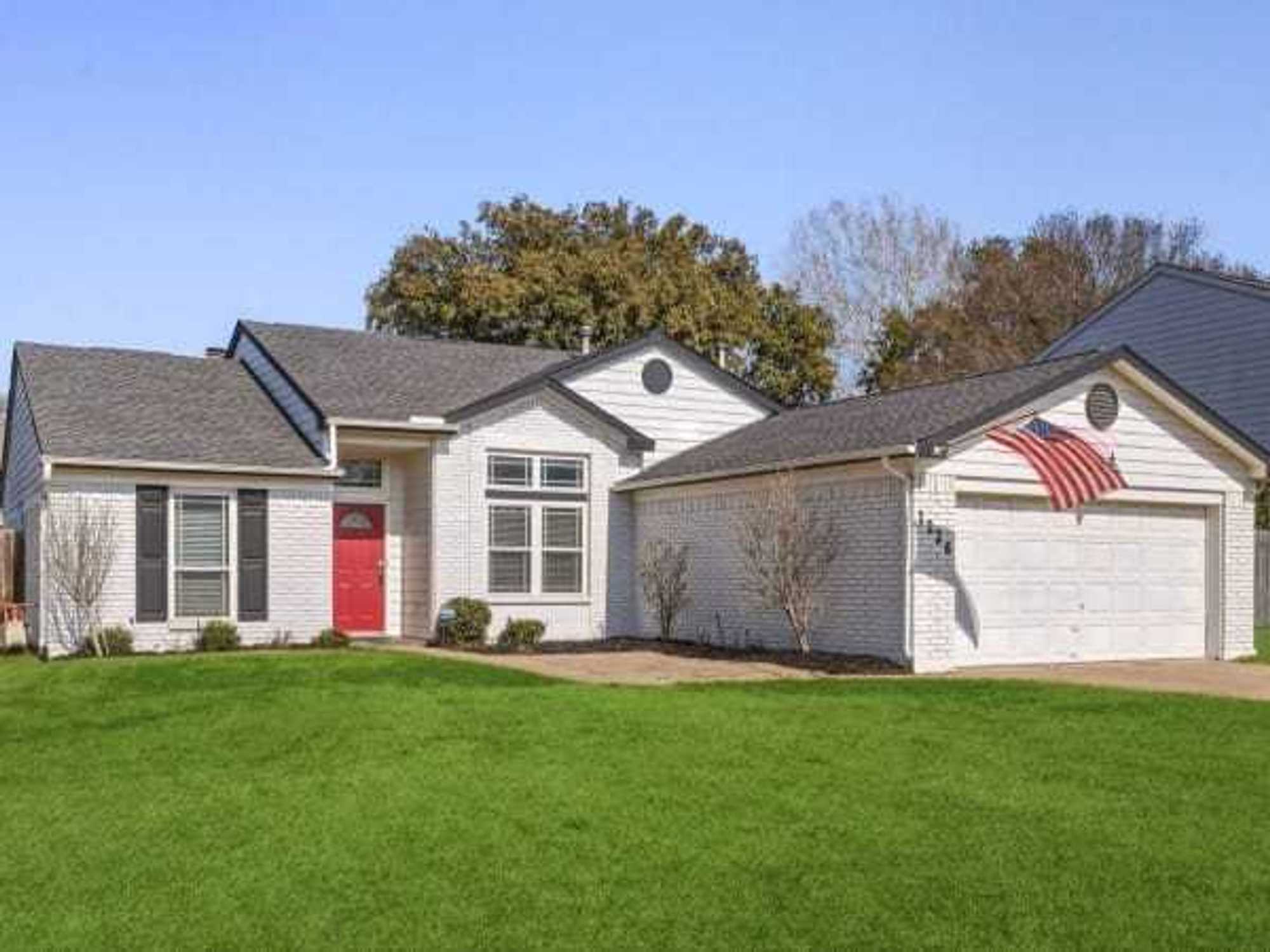



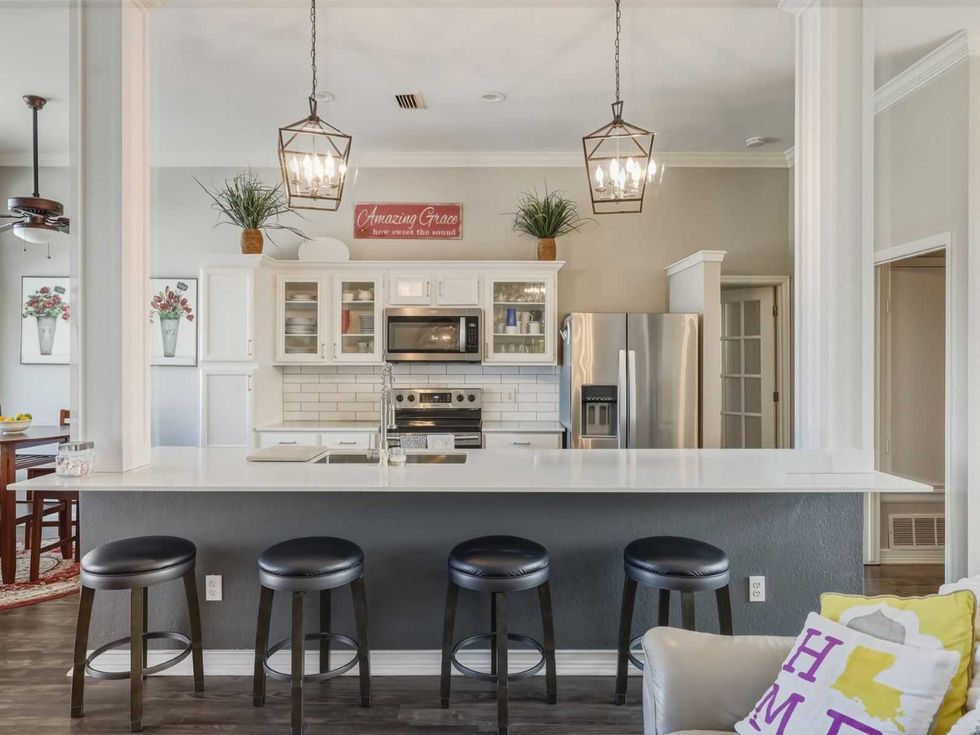
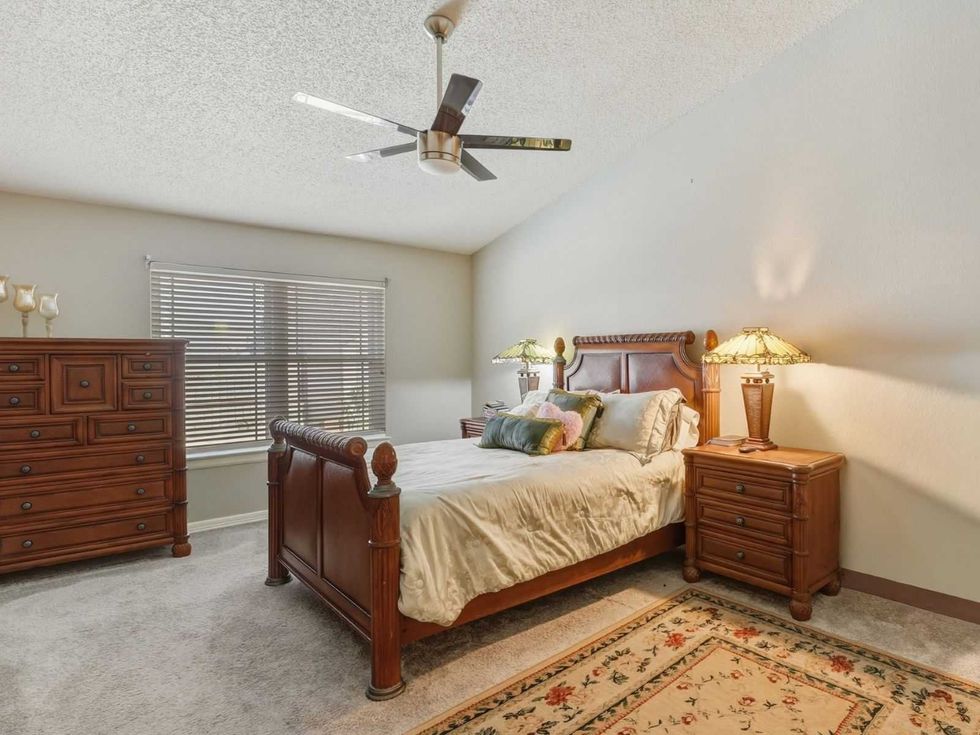
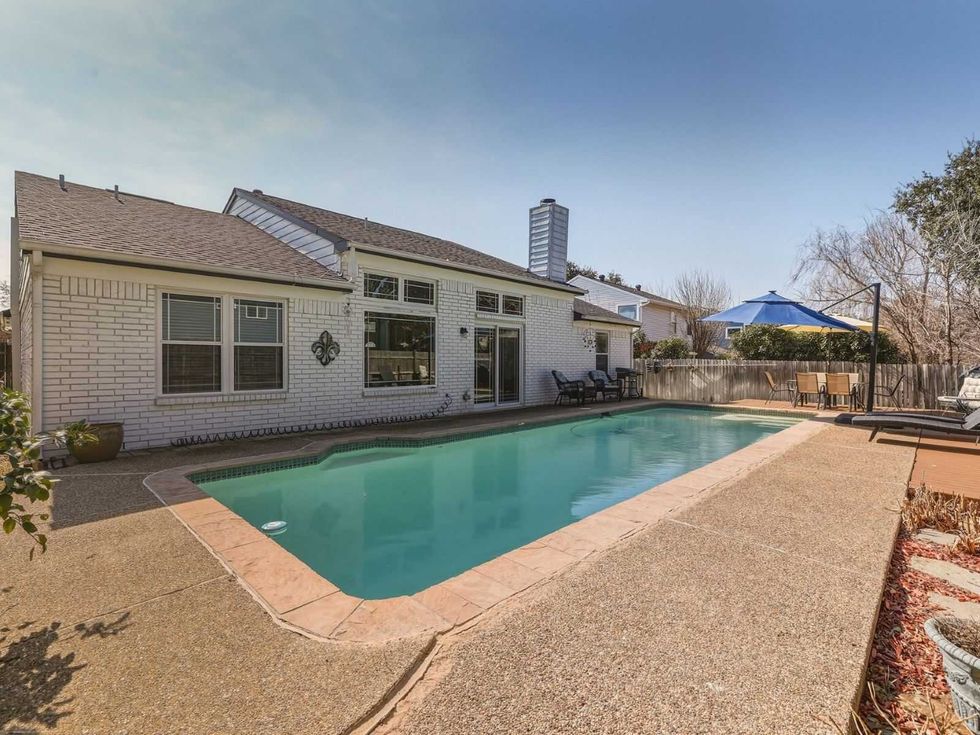
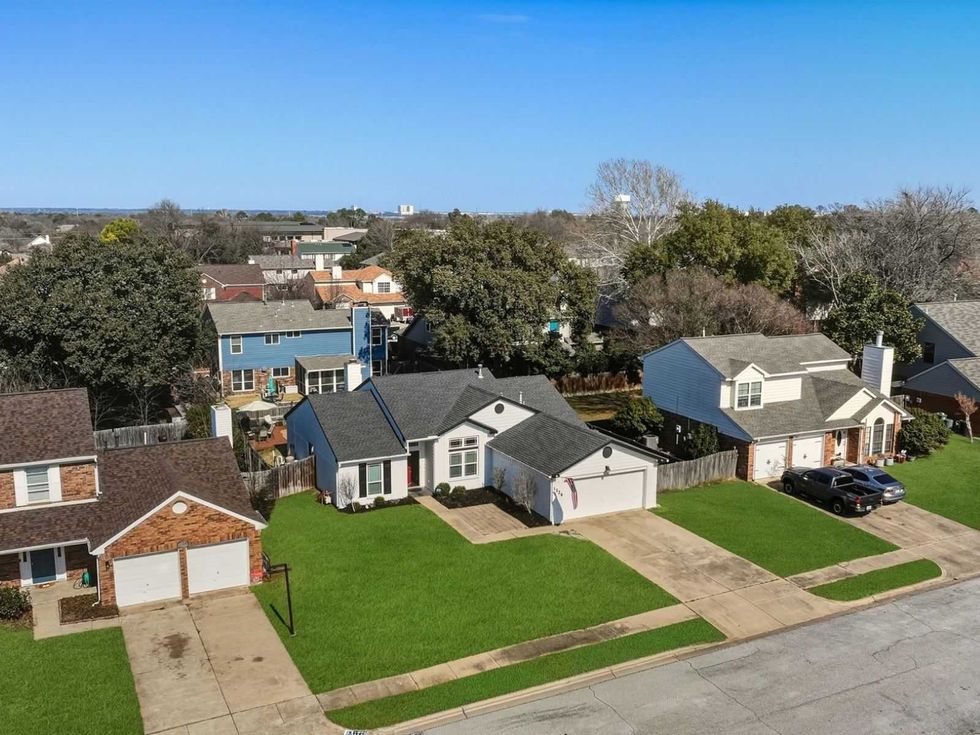 The home is near all the Grapevine hot spots.Photo courtesy of The Meyer Group
The home is near all the Grapevine hot spots.Photo courtesy of The Meyer Group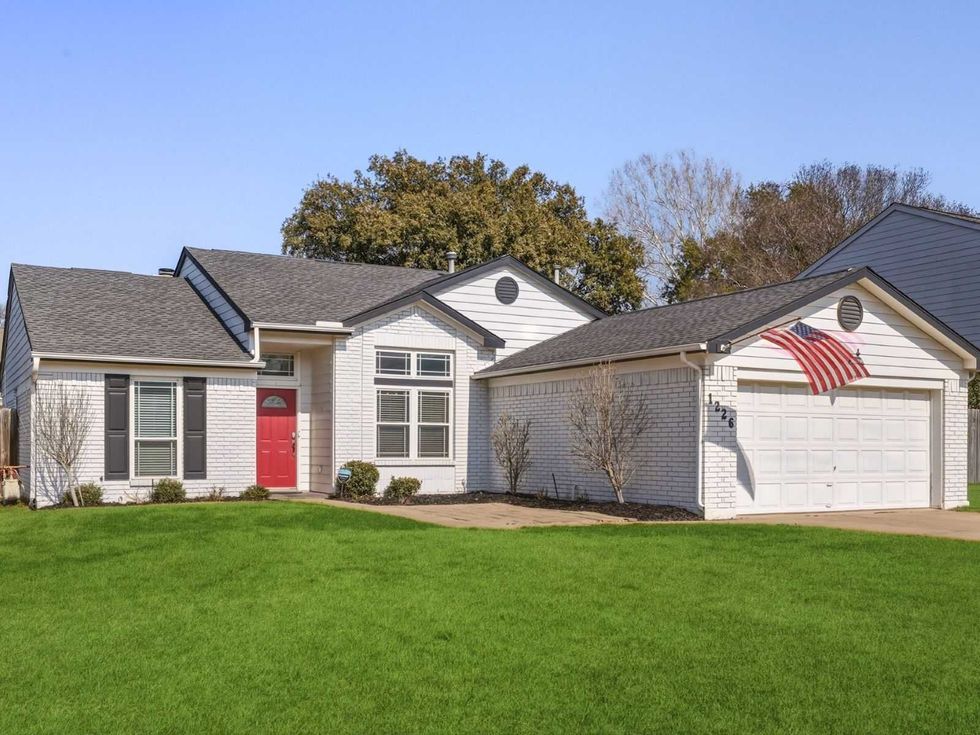 Post Malone's childhood home, at 1226 Eaton Ln., Grapevine, is listed for $549,900. Photo courtesy of The Meyer Group
Post Malone's childhood home, at 1226 Eaton Ln., Grapevine, is listed for $549,900. Photo courtesy of The Meyer Group